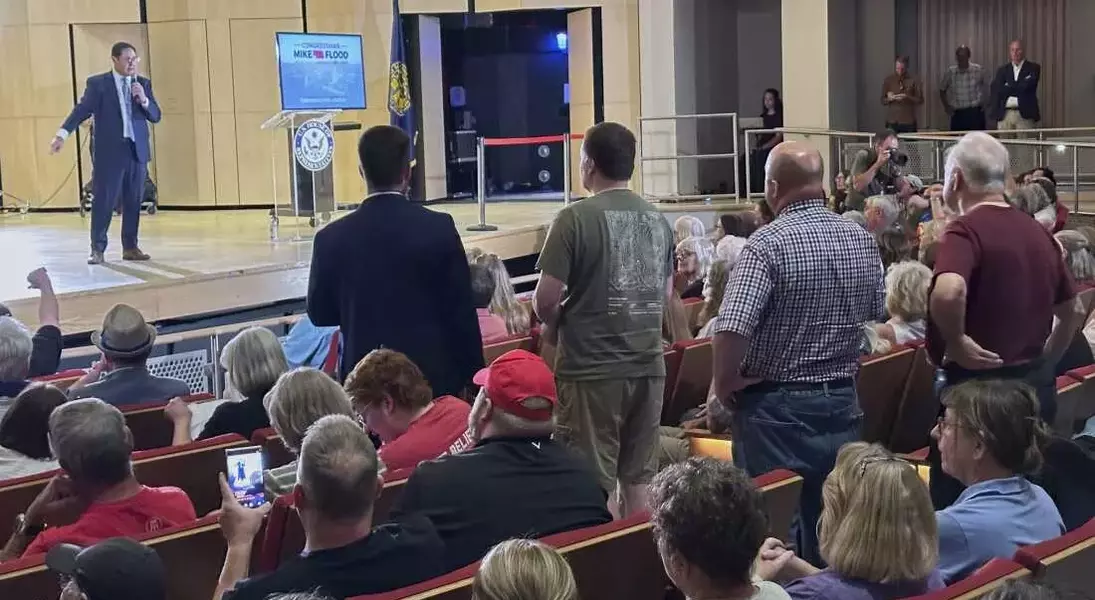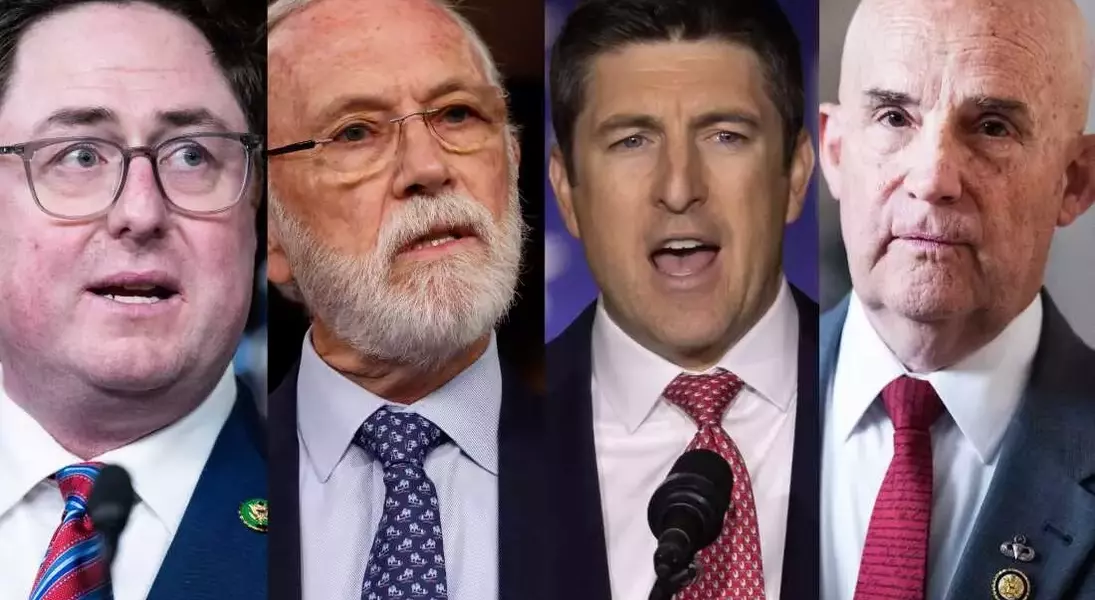



Republican members of Congress are spending their August recess engaging with constituents, a period traditionally used for grassroots connection and electoral groundwork. However, this year's interactions are marked by palpable tension, as lawmakers strive to convey a consistent message regarding the recently passed \"One Big Beautiful Bill.\" This major piece of legislation, signed into law by President Trump, has ignited robust discussions on its implications for healthcare, taxation, and immigration. Despite receiving strategic communication guidance from the National Republican Congressional Committee (NRCC), the public forums often become intense, highlighting the challenges Republicans face in defending their policy choices and demonstrating their commitment to American citizens.
These town halls offer a revealing glimpse into the public's current concerns and the strategies employed by the GOP to address them. While the NRCC has advised Republicans to proactively promote their legislative successes and differentiate themselves from Democrats, the reality on the ground is complex. Voters are vocal, frequently challenging their representatives on specific provisions of the new law, especially those related to social welfare and economic impact. The congressional recess, usually a time for solidifying local support, has transformed into a series of debates where lawmakers must skillfully articulate their positions while navigating direct and often critical questioning from their constituents.
Navigating Public Scrutiny: Republican Strategies in Town Halls
As Republican lawmakers convened town halls during their August recess, they encountered significant constituent pushback, particularly concerning the recently enacted “One Big Beautiful Bill.” The National Republican Congressional Committee (NRCC) provided a detailed memo encouraging members to highlight the bill’s benefits, especially those related to tax reductions and work requirements for certain government programs. However, these sessions frequently devolved into heated exchanges, with voters directly questioning the impact of the legislation, particularly its effects on healthcare and the broader economy. Lawmakers, adhering to the NRCC’s prescribed talking points, emphasized aspects like tax relief for middle-income earners and the removal of taxes on tips and overtime, attempting to frame the bill as advantageous for everyday Americans.
For example, Representative Mike Flood faced a large, critical audience in Nebraska, where he defended the healthcare provisions of the bill against accusations of Medicaid cuts. He maintained that the legislation would bring financial benefits to state hospitals and introduced a conservative principle of work requirements for healthcare access. Similarly, Representative Dan Newhouse addressed concerns about Medicaid reductions by asserting that the bill promotes work ethic, arguing that those capable of working should not rely on taxpayer-funded benefits. These interactions underscore a strategic effort by Republicans to control the narrative surrounding the complex legislation. Despite persistent questioning and evident public skepticism, the lawmakers largely remained consistent with the pre-approved messaging, aiming to project an image of a party committed to improving citizens' lives while contrasting their approach with that of the Democratic Party.
Constituent Concerns and Political Messaging in the August Recess
The August congressional recess has illuminated a significant disconnect between the Republican Party's legislative agenda and the concerns of its constituents, particularly regarding the sweeping \"One Big Beautiful Bill.\" Despite the National Republican Congressional Committee's (NRCC) directive to proactively promote the bill's benefits, lawmakers conducting town halls faced intense scrutiny. Voters consistently raised issues such as healthcare access, the implications of tax changes, and immigration policy, challenging the official narrative. This period has revealed the difficulty for Republican representatives in fully addressing public anxiety while adhering to a prepared script that emphasizes the economic upsides for specific voter demographics, like the removal of taxes on tips and overtime.
In various town hall settings, from Nebraska to Washington and Wisconsin, the pattern was clear: constituents pressed their representatives on potentially adverse effects of the legislation, such as perceived cuts to Medicaid and tax burdens on lower and middle-income individuals. Lawmakers, while acknowledging the questions, consistently steered their responses back to the predetermined talking points, highlighting aspects of the bill that they believed would resonate positively with voters. For instance, Representative Bryan Steil countered criticisms about tax cuts favoring the wealthy by emphasizing provisions beneficial to middle-income workers, aiming to alleviate concerns about economic inequality. The limited number of Republicans holding in-person town halls, coupled with the unified, defensive messaging, suggests a cautious approach to engaging with a potentially critical electorate. This dynamic highlights the tightrope walk Republicans face in translating complex legislative achievements into digestible, positive outcomes for their diverse voter base, especially when a significant portion of the electorate expresses disapproval of the party's performance.
